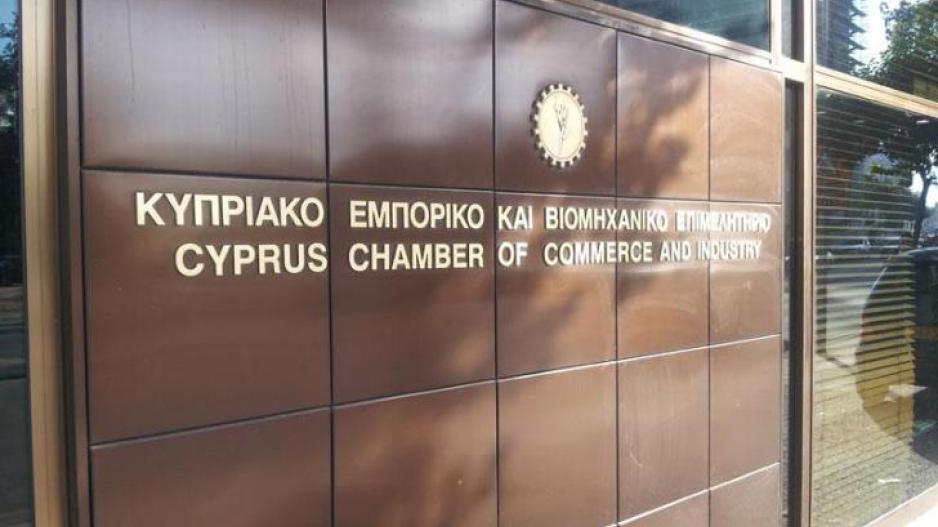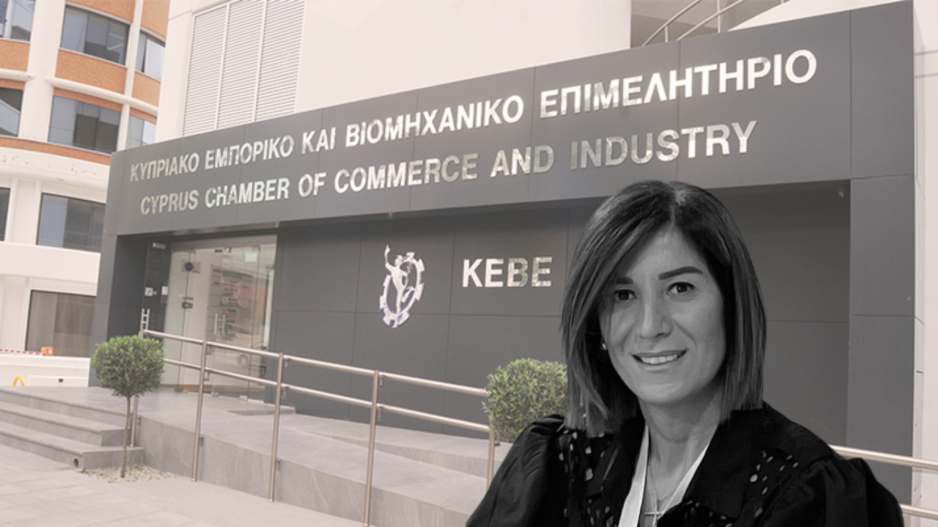Stalo Demosthenous: 'International Collaboration Unlocks Markets for Cypriot Businesses'
CCCI Senior Officer Talks About Shaping Cyprus’s Economy, Driving SME Growth, and Advancing International Collaboration
Since its establishment in 1927, the Cyprus Chamber of Commerce and Industry (CCCI) has been a cornerstone of Cyprus's economic and business development. As CCCI approaches its 100th anniversary in 2027, its legacy as a vital advisory body and advocate for innovation continues to shape the nation’s business landscape.
In her interview with FastForward, Stalo Demosthenous, a seasoned Senior Officer at CCCI, sheds light on the organization’s key achievements and future aspirations. From its role in EU Cohesion Policy Programs to the green and digital transitions of Cypriot SMEs, Stalo shares valuable insights into how the Chamber has supported businesses in adapting to challenges while seizing opportunities.

Since its establishment in 1927, the CCCI has been a pivotal force in fostering a favorable environment for business and trade.
The greatest achievements of the CCCI include:
-
Promotion of Regional Cooperation: The CCCI has played a key role in developing partnerships with other countries, such as Greece and Egypt, through trilateral business conferences and memoranda of understanding. These collaborations have strengthened regional economic development and energy security.
-
Advisory Role: The CCCI has played a significant advisory role to governments and authorities, advocating for business interests on labor issues, imports, exports, and investment attraction. It has made crucial contributions to broader matters such as EU and eurozone membership and the creation of the General Health System (GeSY).
-
Support for Economic Development: The CCCI has supported efforts to modernize the economy, contributing to the reduction of unemployment and public debt, and increasing the growth rate.
These achievements highlight the CCCI’s significant contribution to the economic and social development of Cyprus.
The Chamber has played a key role in shaping and implementing the EU Cohesion Policy Programs for the 2014–2020 and 2021–2027 periods, ensuring that Cypriot businesses benefit from these opportunities and contribute to regional development. It has also made numerous recommendations to strengthen the Cyprus economy and support SMEs, many of which have been integrated into policy frameworks.
The two periods show distinct differences in objectives and challenges. The 2014–2020 focus was on innovation, the digital agenda, SME support, and a low-carbon economy, with funds concentrated on specific priorities to maximize impact. The goal was to reduce regional inequalities and promote balanced growth. The 2021–2027 period shifted focus to five key areas: a smarter, greener, more connected, social, and citizen-focused Europe. It also placed more emphasis on climate action and local authority involvement in fund management.
Environments are constantly changing, so we must continually adapt
Cyprus faced unique challenges during these periods. From 2014–2020, the country worked on recovery from the financial crisis, while from 2021–2027, it confronted the COVID-19 pandemic and geopolitical instability, such as the war in Ukraine.
We see that environments are constantly changing, so we must continually adapt. Effective collaboration among all stakeholders, along with a focus on sustainability and innovation, is crucial for long-term economic success.
The Enterprise Europe Network (EEN) in Cyprus plays a crucial role in supporting SMEs by offering a wide range of services designed to foster innovation, international expansion, and competitiveness. EEN Cyprus provides personalized support to help SMEs navigate EU regulations, understand legal requirements, and operate successfully in both EU member states and third countries. It organizes B2B meetings, international exhibitions, and business missions, creating valuable opportunities for businesses to find international partners for growth.
The network promotes innovation and the adoption of digital technologies, helping local businesses build sustainable models and stay competitive. EEN Cyprus also raises awareness and offers training through workshops and seminars, guiding SMEs on business opportunities, compliance, and market trends.
For SMEs, EEN Cyprus provides access to international markets, facilitating partnerships that help expand business reach. It supports innovation, encouraging the development of new products and services. By helping SMEs comply with EU regulations, EEN ensures they can access the Single Market and avoid legal obstacles. The network also offers valuable networking opportunities, connecting businesses with potential partners, investors, and customers.
One success story involves a Cyprus-based company that developed an innovative real-time indoor air quality monitoring technology. With EEN's help, the company broadened its market reach by connecting with key stakeholders and participating in seminars and matchmaking events organized by EEN, which enabled them to scale up production and strengthen both their local and international presence.
Another example is a business in the HORECA industry, which was seeking to expand its product range. Through EEN Cyprus, the company connected with a supplier in another country who produced products compliant with EU regulations. This collaboration allowed the company to successfully import and distribute these products in the local market, leading to a significant boost in sales and turnover. These success stories highlight how EEN Cyprus has been instrumental in helping businesses grow, innovate, and expand internationally.
International collaboration is essential for Cypriot businesses to access new markets, drive innovation, and remain competitive. The Cyprus Chamber of Commerce and Industry (CCCI) plays a central role by organizing business delegations in collaboration with the Ministry of Energy, Commerce, and Industry, the Ministry of Foreign Affairs, and through presidential missions. Additionally, CCCI hosts bilateral partnerships and advocates for policies that support business growth.
International collaboration is essential for Cypriot businesses to access new markets and drive innovation
The Enterprise Europe Network (EEN) Cyprus complements this effort by helping businesses find international partners, offering personalized support, and promoting innovation and digital transformation. EEN organizes matchmaking events (B2B meetings) both in Cyprus and abroad, creates company profiles to facilitate connections with potential international partners, and promotes business opportunities across a wide range of economic sectors. Together, they equip Cypriot businesses with the necessary resources and networks to thrive in global markets.
SMEs in Cyprus face several challenges as they work towards a greener and more digital future. One of the biggest obstacles is access to finance, as many businesses struggle to secure funding due to high-interest rates and a lack of guarantees. This makes it difficult for them to invest in sustainable and renewable energy technologies. Additionally, the cost of transitioning to greener practices can be significant, as businesses need to invest in new equipment and technologies, which can be financially overwhelming. On the digital side, many SMEs face a shortage of digital skills among their employees, which impacts productivity and slows down the adoption of digital tools. These challenges can make it harder for SMEs to successfully navigate their green and digital transitions.
Many SMEs are often reluctant to merge with larger companies because they fear losing the independence, identity, and flexibility they value as smaller businesses. The idea of merging can feel overwhelming, especially with concerns about potential culture clashes, changes in leadership, or losing control. However, joining forces or forming larger entities can actually help SMEs become more competitive, foster innovation, and explore new markets. Instead of full mergers, forming strategic partnerships or alliances could be a more manageable and beneficial option, allowing SMEs to work together on key projects while still maintaining their autonomy.
Many SMEs are often reluctant to merge… Instead of full mergers, forming strategic partnerships or alliances could be a more manageable and beneficial option
The first step is to raise awareness about the benefits of collaboration. It’s important for SMEs to understand that these partnerships allow them to share resources and expertise without sacrificing their core values. Providing clear guidance, support, and open lines of communication can make it easier for SMEs to embrace these opportunities while preserving what makes them unique. Once the value of collaboration is understood, governments can step in with targeted funding programs and support schemes designed to help SMEs form these partnerships, giving them the resources they need to grow and succeed together.






